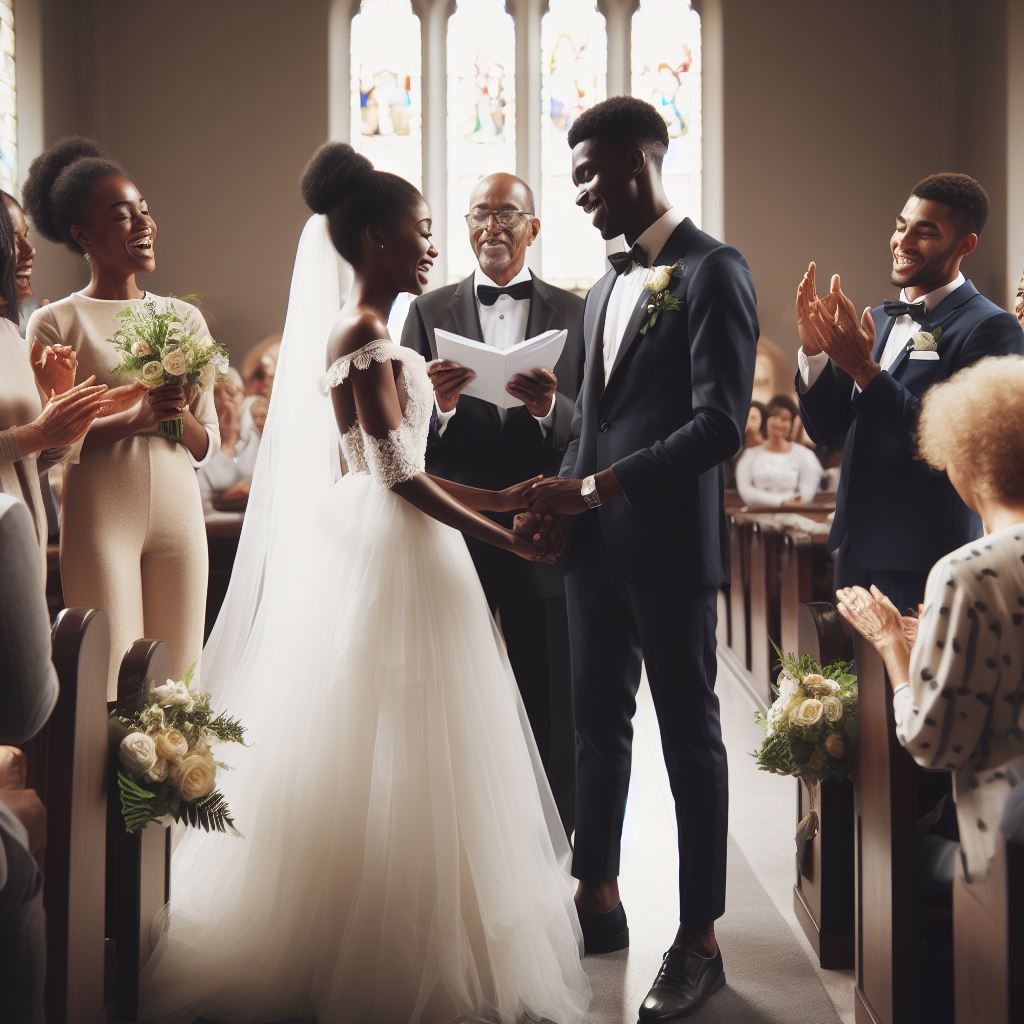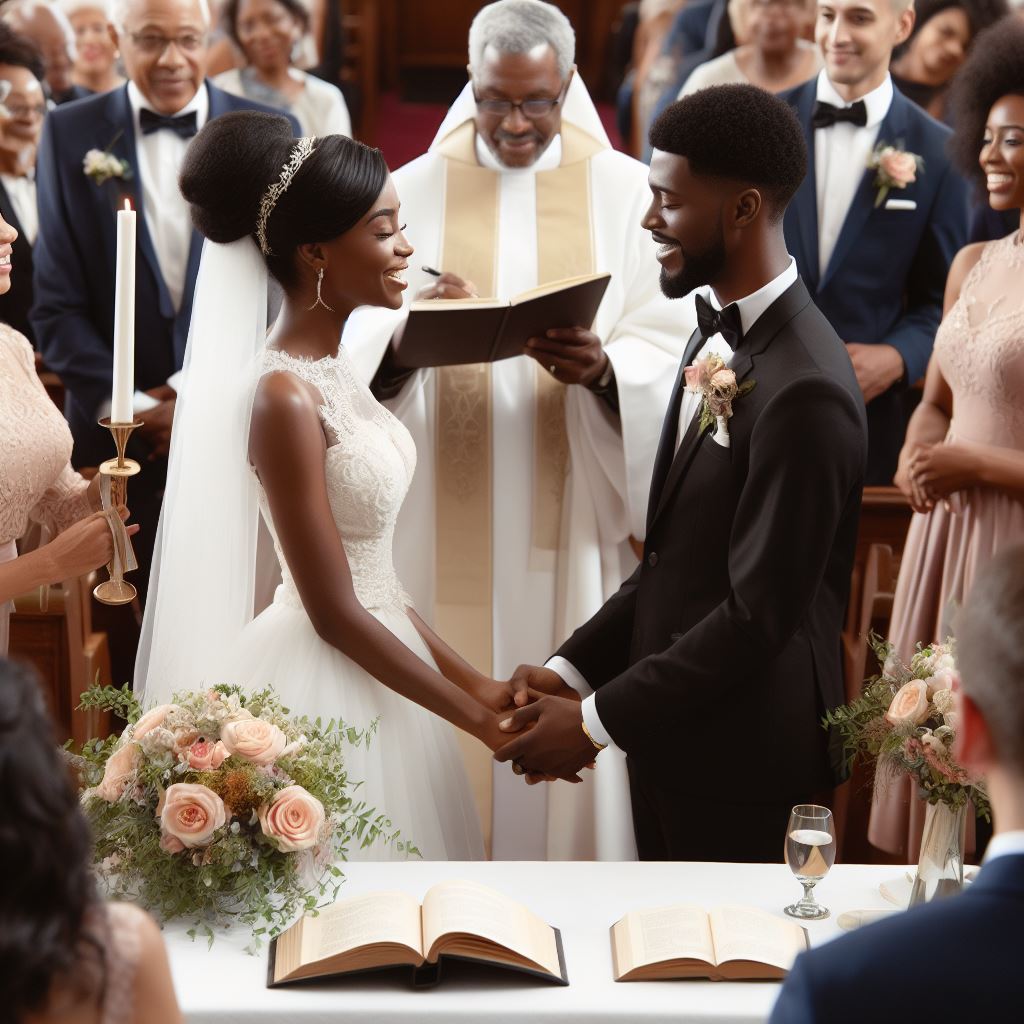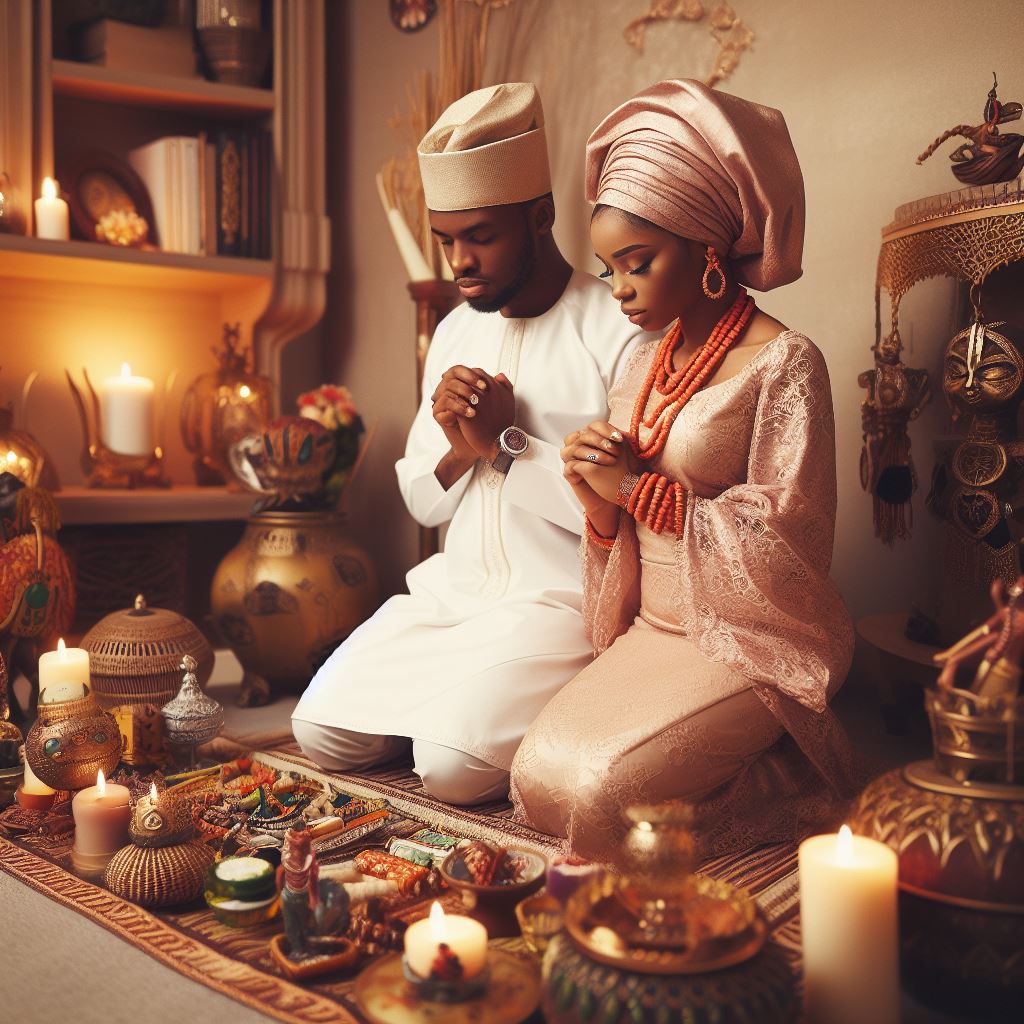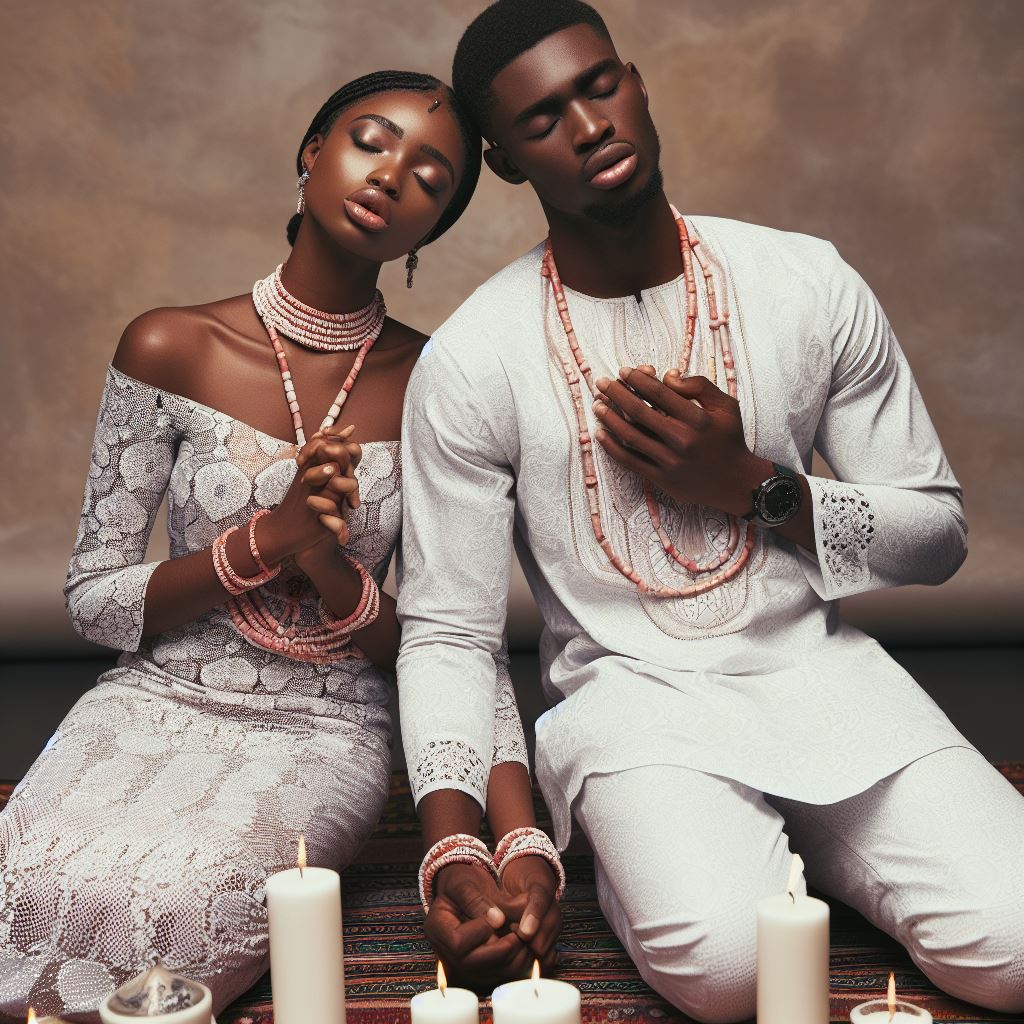Introduction
Nigeria, a country in West Africa, is known for its diverse culture and traditions. Love, commitment, and marriage hold great significance in Nigerian society.
Brief overview of Nigeria’s diverse culture and traditions
With over 250 ethnic groups, Nigeria is a melting pot of cultures and traditions.
Each group has its unique beliefs and practices when it comes to love, commitment, and marriage.
Importance of love, commitment, and marriage in Nigerian society
Love, commitment, and marriage are highly valued in Nigerian society.
They are seen as essential building blocks for a successful and stable family unit.
Marriage is not just a union between two individuals but also a connection between families and communities.
Love is seen as the foundation of a healthy relationship, and commitment is seen as the glue that holds it together.
Nigerian couples are expected to be fully committed to each other, and divorce is generally frowned upon.
Marriage is considered a sacred institution, and traditional ceremonies play a vital role in the process.
These ceremonies often involve elaborate rituals, feasts, and the exchange of gifts to symbolize the unity between the couple and their families.
In Nigerian society, marriage is seen as a lifelong commitment, and divorce is viewed as a failure.
Couples are expected to work through their differences and find solutions to maintain a harmonious and loving relationship.
Basically, Nigeria’s diverse culture and traditions place immense importance on love, commitment, and marriage.
These values contribute to the strength and stability of Nigerian families and communities.
Nigeria’s Views on Love
Cultural and historical context
Traditional beliefs and practices regarding courtship and romantic relationships
Nigeria has a rich cultural heritage that influences its views on love and relationships.
In traditional Nigerian societies, courtship was a communal affair that involved the families of the couple.
It was seen as an opportunity to assess the compatibility of the potential partners.
Influence of religious and tribal customs on the concept of love
Religion and tribal customs play a significant role in shaping Nigeria’s views on love.
For instance, in Islam, love is often seen as a spiritual connection between two individuals and is believed to be ordained by Allah.
Similarly, in some tribes, traditional ceremonies and rituals are performed to ensure the success and longevity of a couple’s love.
Modern perspectives on love
Western influences and the rise of romantic love in Nigerian society
In recent years, Nigeria has experienced an influx of Western influences, including the concept of romantic love.
Young Nigerians, especially those in urban areas, have been exposed to Western media and ideals of love portrayed in movies, music, and literature.
This has led to a shift in perspective, with many embracing the idea of falling in love and finding their soulmates.
Challenges and conflicts between traditional and modern views on love
The adoption of modern views on love has not been without challenges and conflicts.
Many Nigerians find themselves torn between traditional beliefs and the allure of Western ideals.
This clash often leads to generational gaps and disagreements within families.
Additionally, societal expectations, such as arranged marriages, can sometimes hinder the pursuit of romantic love.
Generally, Nigeria’s views on love are deeply rooted in its cultural and historical context.
Traditional beliefs and practices, influenced by religion and tribal customs, shape the way Nigerians approach courtship and romantic relationships.
However, the advent of Western influences has brought about a shift in perspectives, with many Nigerians embracing the concept of romantic love.
This shift, though not without challenges, opens up new possibilities for individuals in their pursuit of love and happiness.
Read: Marriage Expectations: From Singlehood to Matrimony in Nigeria
Nigeria’s Views on Commitment
Traditional expectations of commitment in relationships
Arranged marriages and the concept of loyalty
In Nigerian culture, commitment in relationships has traditionally been closely tied to the concepts of loyalty, family, and community.
Arranged marriages were common, and loyalty to one’s spouse was considered crucial for the success and stability of the marriage.
The role of family and community in ensuring commitment
Family and community also played a significant role in ensuring commitment.
Marriage was seen as a union not just between two individuals but between two families.
Therefore, couples were expected to prioritize the needs and values of their families and communities, sometimes even over their own individual desires.
Changing attitudes towards commitment
Rise of individualism and the shifting dynamic in relationships
However, in recent years, Nigerian society has witnessed a shift in attitudes towards commitment.
The rise of individualism and the influence of Western culture have challenged traditional notions of loyalty and obedience.
Younger generations are more inclined to prioritize their personal happiness and self-fulfillment in relationships.
This shift is also influenced by factors like globalization and urbanization.
As Nigeria becomes more interconnected with the rest of the world, the traditional values that once emphasized commitment within a small community are being challenged.
Urbanization has brought about changes in lifestyle and increased exposure to diverse ideas and perspectives.
As a result, Nigerian couples are facing a more complex landscape when it comes to commitment.
They are navigating between traditional expectations and the desire for personal freedom and autonomy.
This can create tensions and conflicts within relationships as individuals strive to balance their own needs with societal expectations.
Impact of globalization and urbanization on commitment in Nigerian couples
Moreover, the impact of globalization and urbanization has led to a reevaluation of the role of family and community in ensuring commitment.
While these institutions still hold significant influence, individuals now have access to a broader range of support networks and alternative sources of guidance and validation.
Essentially, Nigeria’s views on commitment are evolving.
The traditional emphasis on loyalty and family ties is being challenged by individualism, globalization, and urbanization.
Nigerian couples now face a more complex dynamic where personal desires and societal expectations often collide.
It is important for individuals and communities to engage in open and respectful dialogues to navigate these changes and foster healthier and more fulfilling relationships.
Read: The Dynamics of Christian Marriages in Contemporary Nigeria
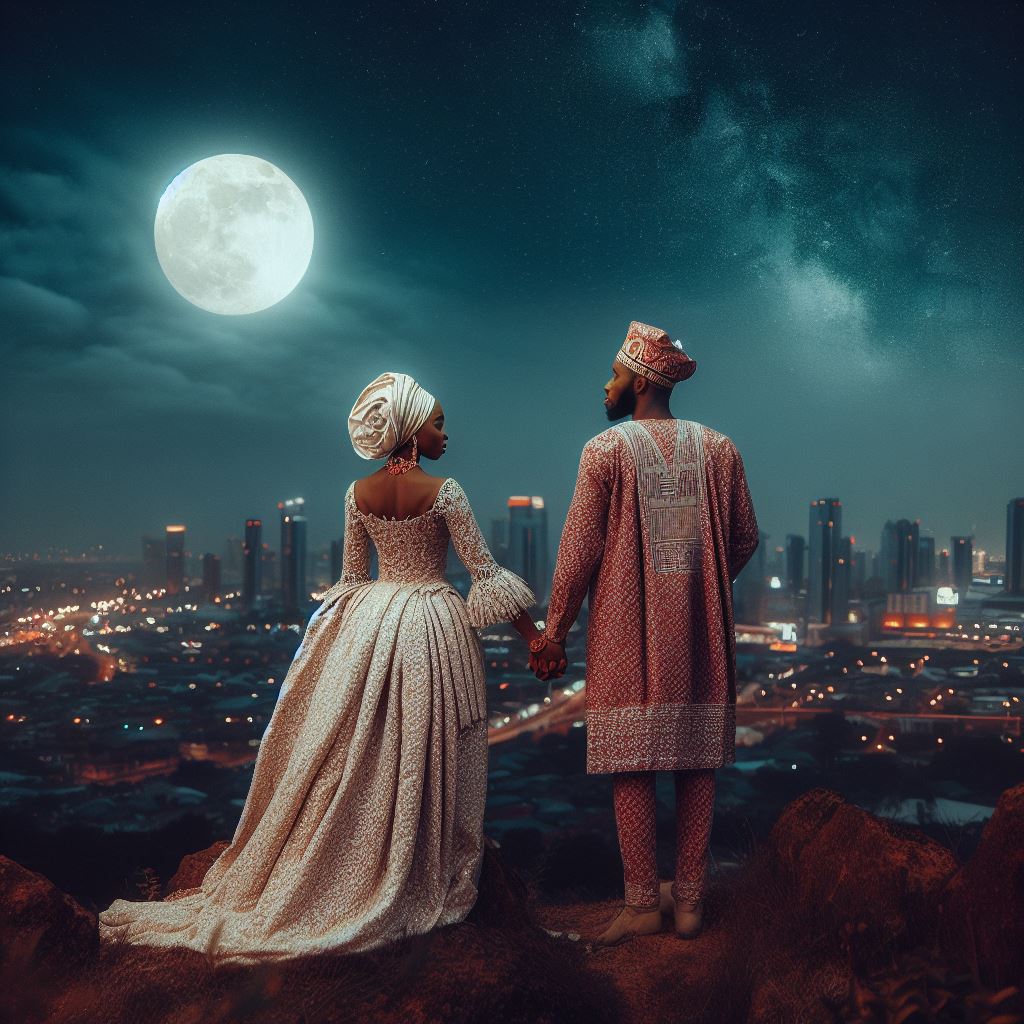
Explore Further: Marriage in Proverbs: Wise Sayings for Nigerian Couples
Marriage Definition in Nigeria
In Nigeria, marriage is deeply rooted in culture, tradition, and legal frameworks.
It is viewed as a sacred bond and an institution that transcends romantic love.
This section explores the diverse definitions of marriage in Nigeria, taking into account both traditional customs and contemporary legal perspectives.
Traditional Nigerian marriage customs and rituals
Introduction to the different marriage traditions across Nigeria’s ethnic groups
Nigeria is a country with over 250 ethnic groups, each having their own unique marriage traditions.
These traditions vary from region to region, but they all emphasize the importance of family and community involvement.
Marriage is seen as a union not just between two individuals, but between two families.
The significance of marriage as a social and economic institution
Marriage ceremonies in Nigeria are often elaborate and involve multiple rituals and ceremonies that can span several days.
These rituals include the payment of bride price, exchange of gifts, dowry negotiations, and traditional ceremonies like the Igbo “Igba Nkwu” and the Yoruba “Engagement Ceremony.”
These customs reflect the value placed on marriage as a societal and economic institution.
Legal framework and contemporary definition of marriage
The recognition of different marriage types, such as monogamy and polygamy
While traditional customs still hold significant importance, the legal framework around marriage in Nigeria has evolved.
The Nigerian legal system recognizes different types of marriages, including monogamy and polygamy, with each having its own legal implications.
Monogamy, where a person is married to only one spouse, is the most common form of marriage recognized by Nigerian law.
It is legally binding and governed by the Marriage Act, which requires couples to undergo a civil marriage ceremony and obtain a certificate of marriage.
Polygamy, on the other hand, refers to a marriage where a person has multiple spouses.
Nigerian law allows for polygamous marriages under certain conditions, as long as the husband can provide for all his wives and children.
However, polygamy is more prevalent in certain cultural and religious groups, such as the Hausa and Fulani ethnic groups and some Muslim communities.
Impact of colonialism and Nigerian legal system on marriage definition
The definition of marriage in Nigeria has also been influenced by colonialism.
During the colonial era, British colonialists introduced their own legal system and attempted to impose their own values and norms on Nigerian society.
This resulted in a clash between traditional customs and the British legal framework, especially regarding marriage.
Over time, a compromise was reached, and Nigerian law now incorporates both traditional customs and colonial legal principles.
In general, the definition of marriage in Nigeria is a complex mix of traditional customs and contemporary legal perspectives.
Marriage is seen as a sacred union between families, and ceremonies often involve elaborate rituals and ceremonies.
Nigerian law recognizes both monogamy and polygamy, reflecting the country’s diverse cultural and religious practices.
The impact of colonialism has shaped the Nigerian legal system, leading to a fusion of traditional customs and colonial legal principles.
In all, marriage in Nigeria is not just a personal commitment but a social and economic institution deeply rooted in culture and tradition.
Read: The Evolution of Marriage Definitions in Nigerian Cultures
Uncover the Details: Hausa Wedding Blessings: A Glimpse into Northern Nigeria
Challenges and Evolving Perspectives
Generational Differences and Conflicting Opinions
- In Nigeria, views on love, commitment, and marriage are not static.
- Generational gaps create diverse opinions on these fundamental aspects of life.
- Older generations often uphold traditional values, emphasizing arranged marriages and family obligations.
- Younger Nigerians, however, increasingly embrace love marriages and individual autonomy.
- This generational clash occasionally leads to family tensions and cultural shifts.
Influence of Social Media, Foreign Media, and Globalization
- Social media has revolutionized how Nigerians perceive relationships.
- It provides a platform for global trends to infiltrate local customs.
- Western ideals of romance, as seen in Hollywood movies, can affect relationship expectations.
- Exposure to foreign media also opens doors to international dating and marriage.
- Globalization accelerates cultural exchange, shaping evolving definitions of love and commitment.
Evolution of Gender Roles and Its Impact
- Gender roles have transformed significantly in Nigeria.
- Women’s roles now extend beyond homemaking to include careers and self-sufficiency.
- This evolution reshapes expectations regarding love and commitment.
- Men and women increasingly seek equal partnerships, challenging traditional patriarchal norms.
- In a nutshell, these evolving perspectives reflect Nigeria’s dynamic society, adapting to the winds of change.
Read: Marriage Rites and Celebrations in Major Nigerian Tribes
Discover More: Intercultural Marriages and the Nigerian Legal Framework
Conclusion
Recap of Nigeria’s Views on Love, Commitment, and Marriage
Nigeria’s perspectives on love, commitment, and marriage reflect its rich cultural diversity.
Love often intertwines with tradition, creating deep, enduring connections.
Commitment, a cornerstone, emphasizes support, loyalty, and family unity.
Marriage signifies more than a union of individuals; it symbolizes the blending of extended families and communities.
Reflection on the Evolving Nature of These Concepts in Nigerian Society
In the dynamic landscape of Nigerian society, these concepts are evolving.
Younger generations embrace love as a key factor in partner selection, reflecting a shift from arranged marriages.
The emphasis on commitment remains, though the nature of commitment has transformed into more egalitarian and partnership-oriented.
Importance of Understanding and Respecting Nigeria’s Diverse Perspectives on Love, Commitment, and Marriage
Understanding and respecting Nigeria’s diverse perspectives on love, commitment, and marriage is crucial.
It fosters tolerance and harmony in a nation known for its diverse cultures, languages, and religions.
Recognizing that there is no one-size-fits-all approach allows for inclusivity and acceptance.
All in all, Nigeria’s views on love, commitment, and marriage are multifaceted, deeply rooted in tradition, and ever-evolving.
This rich tapestry of beliefs underscores the importance of cherishing diversity, and respecting these values is vital in a country where unity in diversity is more than just a motto; it’s a way of life.

